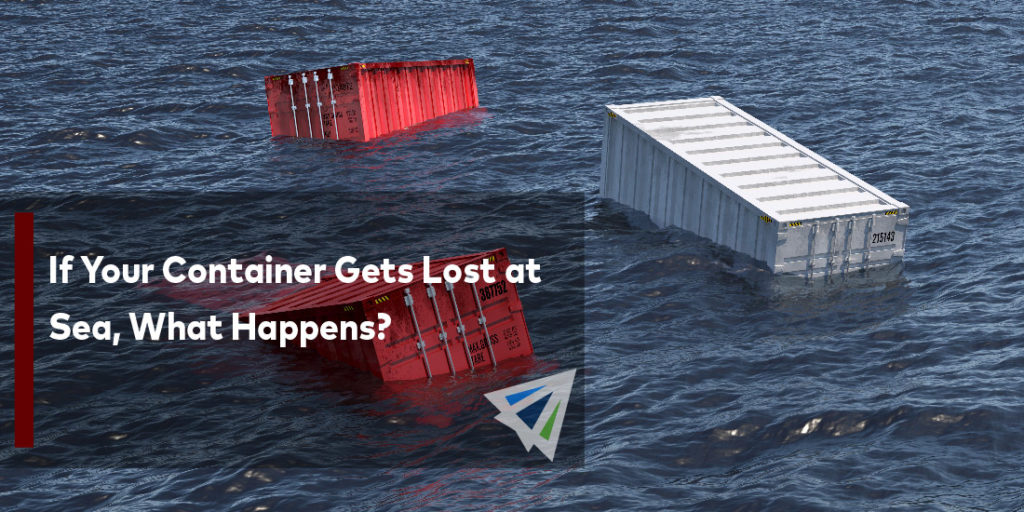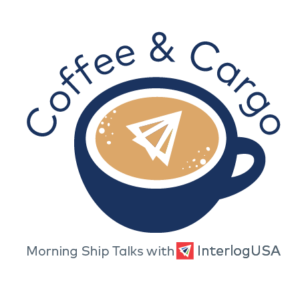Competitive Edge
January 19th, 2022
Stay Current with Interlog’s Weekly Newsletter:
Sign up for our next Coffee & Cargo webinar –> CLICK HERE
To watch today’s webinar –-> CLICK HERE
Ocean Freight Market Update
Headlines
- The Port of Los Angeles Harbor Commission has extended the container dwell fee program until April 29, even though it has yet to be implemented.
- Shanghai and Xiamen port calls increase as ships re-route from Ningbo.
- After industry outcry, Canada’s Port of Vancouver has decided to postpone its Rolling Truck Age Program that was supposed to take effect on February 1. Trucks more than 10 years old will continue for an unspecified period to be admitted to the port.
UPDATE: U.S./Canada Port Congestion
- Savannah: 13 Backlogged Vessels
- Charleston: 11 Backlogged Vessels
- Norfolk/Newport News: 31 Backlogged Vessels
- Los Angeles/Long Beach: 80 Backlogged Vessels
- Note: This does not include LA/LB bound vessels waiting at ports of origin
- Vancouver: 70 Backlogged Vessels
IMPORT: Asia to North America (TPEB)
Recent Developments:
- LA/LB port congestion worsens causing port omissions and limited available capacity as 120+ vessels wait to berth
- LA/LB port congestion is so severe that ocean carriers are limiting booking for local deliveries, preferring IPI cargo through the PSW gateway
- Shippers with urgent cargo or trying to restore depleted inventories are willing to pay premium rates for scarce space
Rates: Rate levels remain elevated. The premium market is strong for pre-CNY sailings which has risen premium rates. Some carriers are expected to increase rates into the second half of January, with some carriers extending them until post-CNY.
Space: Space remains critical.
Capacity/Equipment: Capacity remains severely under. Equipment deficits critical.
TIPS: Book at 4 to 5 weeks prior to CRD. Strongly consider premium service and carrier IPIs through the PSW gateway. Be flexible as it comes to equipment and routing.
IMPORT: Europe to North America (TAWB)
Recent Developments: Schedule reliability is anticipated to worsen as winter weather conditions affect the North Atlantic. Port omissions and port rotation changes will continue into the mid-term.
Rates: Rates levels to remain stable, but notably elevated.
Space: Space remains critical, especially for the USWC.
Capacity/Equipment: Capacity remains tight for both North Europe and Mediterranean services. Equipment availability at ports, however shortages remain at inland terminals.
TIPS: Book 5 or more weeks prior to CRD. Strongly consider premium service for higher reliability and no-roll guarantees.
EXPORT: North America to Asia
Recent Developments:
- Diminishing schedule integrity is contributing to void sailings, delays, vessel cut-offs at ports, and challenging post earliest return dates
- Vessel arrivals remain fluid for USWC POLs
Rates: GRI advisories are out for transshipment ports and Oceania destinations for early February.
Capacity: Available capacity remains fluid for USWC POLs. USEC capacity has become for readily available.
Equipment: IPI origins remain adversely affected by deficits on containers and chassis. Standard equipment availability has not been an issue, but special equipment is remains elusive.
TIPS: Book 4 to 6 weeks prior to CRD to secure equipment and vessel space.
AIR FRIEGHT: United States
- Export demand has slightly subsided, and capacity has become manageable.
- Larger shipments from major outbound gateways can take 2 to 3 days from booking to uplift.
- Most terminals provide reduced free time for storage and have earlier close-outs for exports to meet throughput times and screening requirements.
- Several flight cancellations, domestic and international, have happened due to Omicron concerns.
- LAX/ORD/JFK terminals have reduced the backlog of inbound cargo rendering a positive effect on export side of things.
- Rates to Latin America have decreased after the holiday season but remain highly elevated compared to normal levels.
- Rates to Europe and Asia, respectively, are stable compared to previous weeks.
- Average dwell time at European hubs is slightly reducing as congestion improves.
TIPS: Book early considering the current dwell time at airports.
Did You Know?
The largest container ships can cost over $200 million to build!
Freight News
Union Pacific is asking for assistance as a huge increase in thefts on railroad’s property in Los Angeles has increased
Union Pacific is asking for assistance from local and state officials as a spike in thefts has been occurring on the railroad’s property in Los Angeles. Specifically, these thefts have involved trespassers climbing onto the trains and breaking into cargo containers. Union Pacific is also asking Los Angeles County District Attorney George Gascón to reconsider local persecution policies so that trespassers are held accountable, according to Freightwaves.
What has been happening is the trespassers that are caught get their charges reduced to a misdemeanor or petty offense, after paying a nominal fine. This then in turn gives them more incentives to do additional thefts.
According to Freightwaves, customers of Union Pacific, such as UPS and FedEx, have been “seeking to divert rail business away to other areas in the hope of avoiding the organized and opportunistic criminal theft that has impacted their own business and customers,” Adrian Guerrero, Union Pacific General Director of Public Affairs stated.
Union Pacific has 1,600 employees that cover 275 miles of the track at nine rail facilities throughout Los Angeles County, Freightwaves reported. Union Pacific has been increasing it’s security as well as working with local law enforcement, elected leaders and government agencies to help curb this criminal activity.
Due to Supply Chain Issues, the Port of Vancouver is delaying old-truck ban
Back in 2015, the port of Vancouver started a plan called the “Rolling Truck Age Program” which would ban trucks older than 10 years from its gates, according to Maritime Executive. The goal of this program was to reduce hazardous emissions of NOx and particulate matter.
Originally back in 2015 the implementation date for this program was scheduled for February 1st, 2022 – however due to lots of supply chain congestion and harsh weather the port authority has decided to hold off for now. This postponement is larger in part of the United Truckers Association appealing to the port to postpone its ban on older trucks because of how expensive and difficult it has been to find new trucks.
The good news is that around 80% of the port’s truckers have vehicles that comply with the new rule, and only around 350 trucks are too old to meet the port’s new standard, according to Maritime Executive. The port is pushing for operators to replace those vehicles as soon as they can, but there is a big issue on truck supply, as new trucks are costly and difficult to find.
A large reason for these issues in finding new trucks is due to the pandemic, which created a shortage of computer chips and impacted the manufacturing of pretty much everything with computerized controls, including semi-trucks, Maritime Executive reported.
Sign up for our
industry answers
Our team works to provide valuable, unique, and relevant content to assist you in finding solutions. Sign up now.

